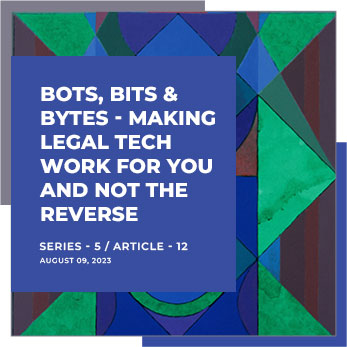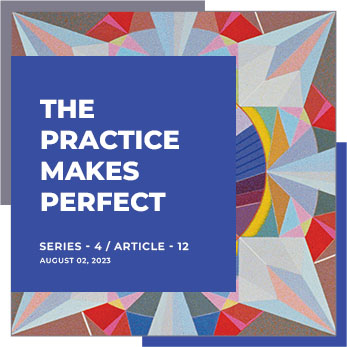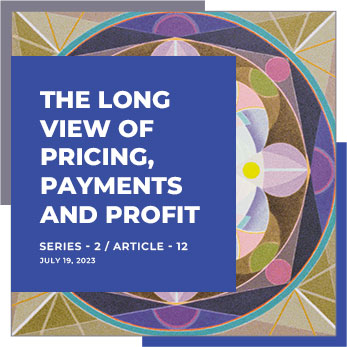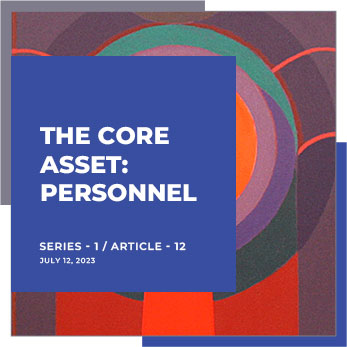Until the end of 1974, the American Bar Association (ABA) maintained its ban on lawyers accepting credit cards as a means of payment. The legal profession, it was argued, should not be placed in the same category as peddlers of retail merchandise or vendors of non-professional services.
However, everything changed with the passing of ABA Formal Opinion 338 on November 16, 1974, reversing the earlier stance and permitting lawyers to accept payment via credit card. But how has the legal profession responded? And, what about the ethics regarding Interest on Lawyers’ Trust Accounts (IOLTA) deposits and credit card fees?
The Payment Platform Marketplace
Today, every consumer is aware that there are a plethora of online payment platforms to choose from, including Paypal®, ApplePay®, Google Wallet®, Square®, and Stripe® (just to name a few), in addition to Visa, MasterCard, and AMEX credit card services. Few consumers would write a check when making a purchase, whether in a
brick-and-mortar retail store or at the dentist’s office. Recent reports indicate that 75% of the population now prefers to pay with a credit or debit card, while 74% of households that have internet access say they pay their bills online.
Poor Perception of Plastic
Given the obvious consumer demand for simple, one-swipe, or one-click payment options, why is there continued resistance by members of the bar to extending this convenient payment method to law clients? Part of the issue lies in the perception that was held back as far as 1969 when the American Bar Association, or ‘ABA’ deemed credit cards worthy of retail purchases but not legal services. Some attorneys continue to consider the acceptance of credit cards as ‘tacky’—suitable for Amazon or eBay but beneath the refinements of the profession. Others feel technologically challenged and believe that they hardly have time to learn a new computer skill. Still, some lawyers have genuine concerns about the ethical implications credit cards present, given the lack of uniform professional code of conduct rules across states. These latter concerns should not be disregarded casually.
ABA Model Rules of Professional Conduct
ABA Model Rule 1.15 mandates that lawyers safeguard client property, and in particular, ensure that earned funds are deposited into an operating account, while client funds go into an “Interest on Lawyers’ Trust Accounts” or ‘IOLTA account’. Although cash and checks are easily segregated for deposit as required, accepting credit card payments poses a different ‘ethical obstacle’. This is where an online processing solution designed specifically for lawyers comes into play.
One example is LawPay®, a processing platform that keeps an attorney’s earned versus unearned fees separate and directs the respective sums to an appropriate account. LawPay® claims a 20% share of all US law firms as customers. Similarly, LexCharge® is another standalone payment processing solution that, like LawPay®, can be integrated with legal billing and practice management software programs. These modern payment processors allow for payment via a link sent to the client, or in-person credit card processing at the firm.
Chargebacks and Processing Fees
A common transaction in credit card charges is the chargeback—essentially a refund to the purchaser or client after disputing a charge. However, for lawyers, this scenario raises yet another ethical issue, because funds held in a lawyer’s trust account are immune from access by any third party. Has a client disputed a credit card charge? The typical credit card processor will attempt a claw-back of those funds while the dispute is pending. This causes a violation of a bedrock ethics rule that no third party may access the trust account.
There are several solutions offered by various ethics committees. Among them, is the creation of separate trust accounts for clients funding their retainers via credit card, and leaving these funds on deposit until the client’s deadline for initiating a chargeback has expired (typically 60 days). Another solution is to arrange with the credit card processor for any disputed chargeback items to be pulled from the firm’s operating account until resolved, as opposed to a withdrawal from the trust account. The aforementioned attorney credit card processing companies boast system safeguards to prevent an occurrence of unwanted access to a lawyer’s IOLTA account.
A second credit card billing issue that raises the specter of an ethics concern is that of ‘processing fees’. Credit card processors typically charge a percentage amount per transaction, which means that if a client remitted a
$1000 retainer into the IOLTA, the net deposit might only be $980. Assuming the client was anticipating—and entitled to—the full $1000 credited to him or her, the reduction could result in an ethics problem for the attorney. One solution is for the firm to charge (and disclose) a surcharge to cover the difference between the required net deposit and the eroded sum.
One Florida Attorney’s Nightmares
In the case of The Florida Bar v. Bodden (SC-17-1320, 2018), an attorney
attorney who used LawPay®, which advertised itself as ‘Florida Bar’s Credit Card Processing Service’, found herself facing an ethics violation charge for passing on the cost of credit card processing to a client. She had used the Florida Bar’s credit card services form to inform the client that she was doing so and had the client sign an acknowledgment of the surcharge. But the referee found her guilty of the violation. In finding an ‘abuse of discretion’ by the referee, the Florida Supreme Court cited Expressions Hair Design, et al v. Schneiderman, Attorney General of New York, 137 S. Ct. 1144, (2017) the US Supreme Court judgement, which identified First Amendment issues regarding surcharge disclosures in the course of passing on the costs of credit card processing fees. Notwithstanding the ruling in Expressions and the findings of the Florida Supreme Court above, attorneys must examine the nuances of processing fees as promulgated in their particular jurisdiction to avoid possible misconduct allegations on their record.
No ‘One Size Fits All’
As opinions can vary widely, the attorney should be vigilant and apprised of their specific State law requirements and any ethical opinions delivered by their State Bar Association with respect to client credit card billing within their jurisdiction. Four states have ethical opinions expressly permitting the acceptance of credit cards for billing, four states have offered no opinion and eight states forbid passing on surcharges and other fees to clients. Meanwhile, 10 states have rendered opinions on accepting credit cards for fees and expenses, but have not made any decision on accepting credit card payments as advanced fees for deposit.
Keeping abreast of the rules in your state is critical to avoiding unpleasant and unintended ethical consequences, as credit card payment becomes an increasingly essential part of running a modern law firm. The benefits are overwhelming—law firms that accept credit cards have on average a 15% higher collection rate—but those benefits must be carefully weighed against the inherent risks.
“PARALEGALS ARE OFTEN HIRED FOR INTENSIVE SUPPORT ROLES WITHIN AN ATTORNEY’S CASELOAD….
…A WIDE RANGE OF TRULY SUBSTANTIVE LEGAL WORK CAN NOW BE LAWFULLY ASSIGNED TO A PARALEGAL”
Executive Summary
1. The Issue
Unlike ordinary businesses, law firms are at times prevented from accepting client payments through credit cards.
2. Gravamen
The law is not like other professions and at times a lawyer’s ethical obligations clash with mechanical aspects of credit card payments – like chargebacks and undisclosed fees.
3. The Path Forward
Diligently noting idiosyncratic state bar association opinions, court rulings, and other dispositive ethical guidelines, which dictate the appropriate usage of credit card payments in the legal profession. This should be done in concert with using trusted and established legal payment vendors who curate their services at a state level.
Action Items
1. Identify relevant state law guidance on the issue.
This guidance can be derived from a variety of sources – State Bar Association’s ethical opinions, direct provisions in state legal ethical rules, court judgements, etc. Finding these answers may require a bit of research, but as payment tends to be a practical concern for those in the legal industry it is unlikely the answer will be hard to find.
However, at times, lawyers will have to resort to indirect interpretations of the current law based on their best reading of the operating court precedent.
2. Categorize pain-points within the credit card payment process where liability can arise.
After a reliable source of legal guidance has been identified, the next obvious step would be to determine where liability will hit hardest during the payment process. For example, if a jurisdiction deems placing chargebacks and processing fees on the client as unethical or alternatively has ‘blacklisted’ certain payment platforms, those points should be diligently noted for Action Item 3.
3. Address foreseeable issues with legally appropriate solutions.
With the issues noted in Action Item 2, the next step would be to find the guidance or best practices for avoiding liability. For example, if a jurisdiction prohibits passing-on credit card fees to clients in certain terms, then perhaps the organization should find a way to bear those costs and factor it into their budgeting. However, if such an action is permissible with the client’s consent, then a solution may be to receive a knowing waiver from the client.
4. Provide clients with clear disclosures about how the payment processing affects their bottom line in relation to the legal services.
Though this can be included as a part of Action Item 3, it is worth emphasizing as it can help reduce the risk of litigation in credit card payment disputes. Being forthright with a client about all the costs ‘baked-in’ to their payments – especially credit card charges – is always recommended as it demonstrates candor while fulfilling one’s legal and ethical obligations
Further Reading
- https://www.americanbar.org/products/ecd/chapter/219982/
- https://www.abajournal.com/advertising/article/can-you-surcharge-clients-who-pay-you- with-a-credit-card
- https://www.clio.com/blog/law-firms-accepting-credit-cards/
- https://www.floridabar.org/the-%EF%AC%82orida-bar-news/lawyers-accepting-funds-via-payment-apps-considered-by-ethics-panel/
- https://www.sfbar.org/blog/legal-ethics-corner-ethical-issues-in-accepting-credit-card- payments/
- http://www.legalnews.com/detroit/1441635/







